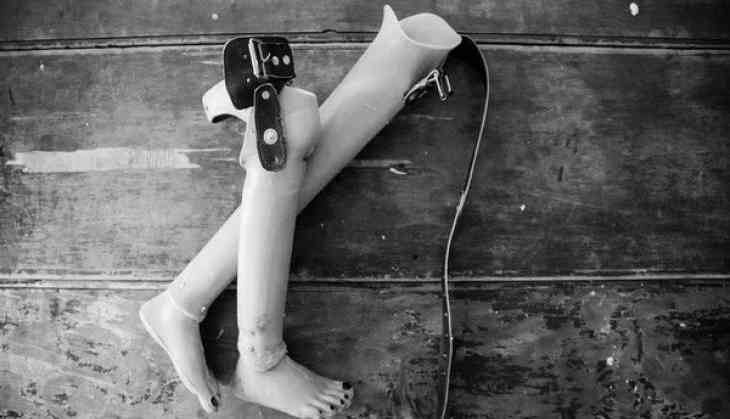Prosthetic limbs represented like real hands in brain

Prosthetic limbs are represented like real hands in the brain, a new research has revealed.
According to a University College London-led study, the human brain can take advantage of brain resources originally devoted to the hand to represent a prosthetic limb.
Among people with only one hand, the brain area that enables us to recognise hands can also recognise a prosthetic hand, particularly among those who use a prosthesis regularly.
The study provides the first account of how artificial limbs are represented in the brains of amputees.
"While the use of a prosthesis can be very beneficial to people with one hand, most people with one hand prefer not to use one regularly, so understanding how they can be more user-friendly could be very valuable," said the study's lead author, Dr Tamar Makin.
"If we can convince a person's brain that the artificial limb is the person's real limb, we could make prostheses more comfortable and easier to use," he added.
The study included 32 people with one hand - half of whom were born with one hand and half had lost a hand due to amputation - alongside 24 people with two hands, used as a control group, most of whom were family or friends of the people with one hand.
The participants were shown images of prosthetic hands (including photos of their own prostheses) as well as real limbs. A functional magnetic resonance imaging (FMRI) scan was used to assess the participants' neural responses.
Within the visual cortex of the brain is an area that enables people to recognise hands. This area displayed a stronger response to images of prostheses among the one-handed participants, compared to the controls, particularly among those who used a prosthesis most frequently in their daily lives.
This part of the brain also responded to images of prostheses that are functional but do not look like a hand, such as a hook prosthesis.
The researchers also investigated the connectivity between the visual hand-selective area and the area of the sensorimotor cortex which would be expected to control the missing hand.
They found there was better connectivity between these two brain areas in those people who used their prostheses regularly.
"Our findings suggest that the key determinant of whether the brain responds similarly to a prosthetic hand as it does to a real hand is prosthetic use. As many of our study participants lost their hand in adulthood, we find that our brains can adapt at any age, which goes against common theories that brain plasticity depends on development early in life," said the study's first author, Fiona van den Heiligenberg.
"We think the ultimate barrier is simply how much you use the prosthesis," said Dr Makin.
The findings from the study are published in the journal Brain.
--ANI

